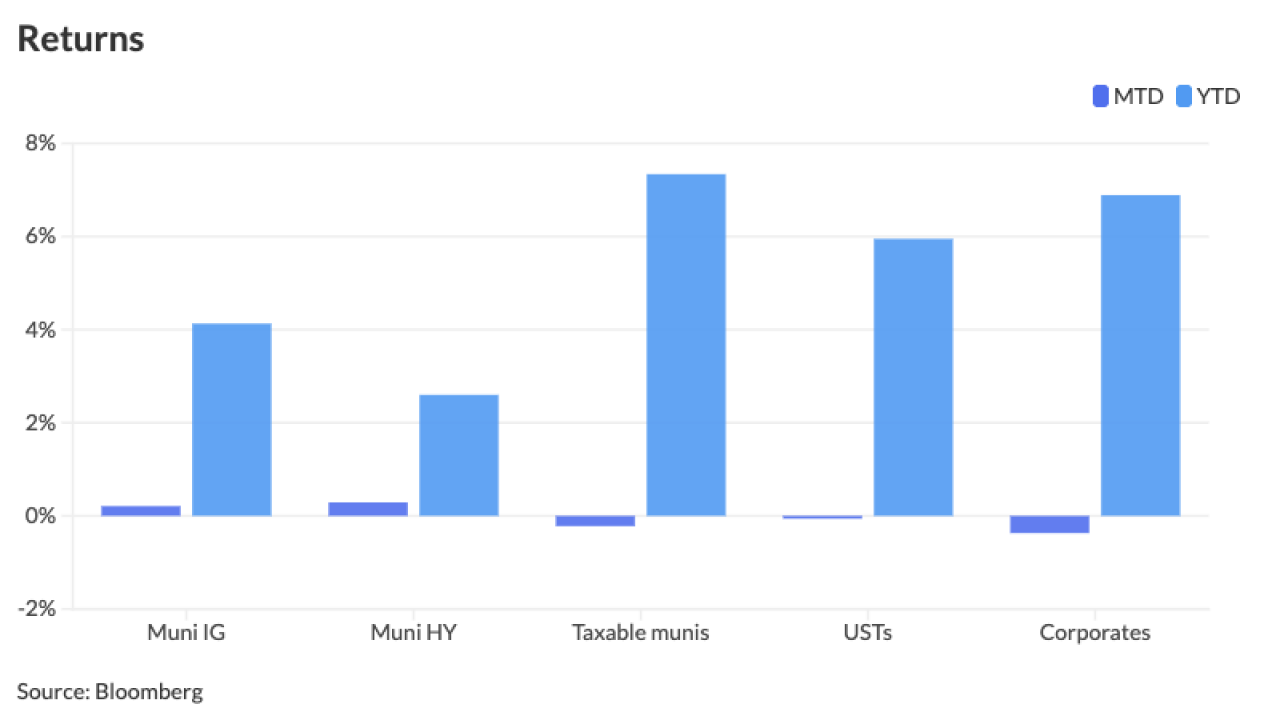WASHINGTON — A top White House official made clear on Tuesday that President Obama is committed to a 28% cap on the value of tax expenditures, which would include tax exempt interest from muni bonds, for higher income earners.
“The president has not only shown a willingness to support that type of reform on tax expenditure reductions, he has led on the issue and put forward a specific and detailed of a proposal to raise over $500 billion,” said Gene Sperling, the director of the National Economic Council, at an event hosted by the Campaign to Fix the Debt.
Tax reform on high income deductions and expenditures should be part of any year-end debt package, Sperling added.
With 27 days left until the end of the year, the White House and congressional leaders are still at an impasse over a year-end bipartisan agreement that would stave off the so-called looming “fiscal cliff” — a set of more than $600 billion in tax hikes and $1 trillion of across-the-board spending cuts slated to go into effect in January. Tax increases and cuts in entitlement programs remain the key sticking points between Democrats and Republicans.
Obama first proposed the 28% cap on the value of expenditures in his jobs bill in 2011 and reintroduced it earlier this year in his fiscal 2013 budget. It didn’t gain momentum but rattled muni market participants who said it would increase borrowing costs for state and local governments.
Late last week, the White House made an opening bid on a budget deal that included a $1.6 trillion tax increase over 10 years, $50 billion in new spending in 2013 and authority that would allow the White House to raise the debt ceiling without congressional approval. That proposal also included plans to enact several pieces of the president’s 2013 budget, including limits on tax breaks.
Sperling said there is “no reason” both parties can’t come together to avoid the fiscal cliff.
On Monday, House Republicans outlined their own $2.2 trillion counteroffer to the president, as the basis for fiscal cliff negotiations, proposing to raise $800 billion through “pro-growth tax reform” that would cut tax expenditures and lower rates. Sperling blasted the offer calling it “disappointing and unfortunate.”
“Recognition that we must raise rates on the highest income-Americans stands today as the critical key to unlocking the door to a bipartisan budget agreement,” Sperling said.
Meanwhile, at the same debt summit, Senate Finance Committee Chairman Max Baucus, D-Mont., said that more revenues are needed this month to avert the fiscal cliff.
“Once that revenue is locked in, we can then turn to overhauling our tax code for the modern economy,” Baucus said.
While Baucus’ speech echoed much of the administration’s policies for a budget deal including the call to raise tax rates, it didn’t preclude him from working on his own plan.
“I’m committed to tax reform, and I could have no better partner in this mission than my good friend Dave Camp,” Baucus said, referring to the Republican from Michigan who chairs the House Ways and Means Committee. “I’ve been developing a plan that will help create jobs, spark innovation and expand opportunity.”
Immediately following his speech, Baucus, asked what would happen if a fiscal cliff deal fell through, told reporters that he is working on a “plan B” option. Baucus said he spoke with, but has not yet given a detailed outline of his plan, to White House officials.
“The president and Speaker are the prime movers; they are the main negotiators right now,” Baucus told reporters. “The ball is in their court to work out a solution.”
Baucus wouldn’t provide any details about his plan except that it should avoid any “gimmicks or triggers.”
He said, however, that any year-end deal should include a permanent extension of the payroll tax cut as well as a long-term extension of the debt ceiling.
Separately, the left-leaning think tank Center for American Progress unveiled their own deficit reduction proposal Tuesday that would convert tax deductions into tax credits, return the top individual marginal tax rate to 39.6% and eliminate the alternative minimum tax.
By implementing a tax credit system, taxpayers could chose to take credits equal to $5,000 per couple, $2,500 per individual or claim itemize credits equal to 18% of a particular tax preference.
The group estimated that their plan would raise $4.1 trillion over 10 years, with $1.8 trillion from tax reform.





